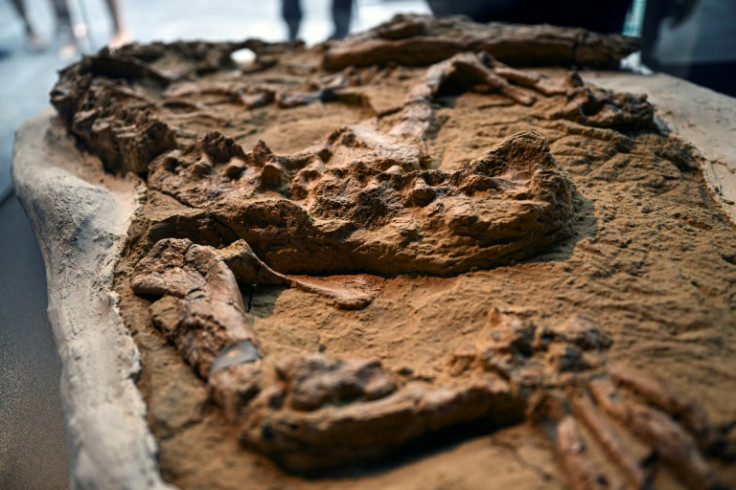
Paleontologists unveiled on Wednesday the fossil of a young marine crocodile dating back 10 to 12 million years that was discovered in a Peruvian desert.
The fossil of the gharial -- or fish-eating -- crocodile, around three meters long (nearly 10 feet), was discovered late 2023 in perfect condition in Peru's Ocucaje desert, around 350 kilometers (190 miles) south of the capital Lima.
"This is the first time we found a juvenile of this species, that is to say, it had not reached its maximum size yet. It died before that," vertebrate paleontologist Mario Gamarra told a news conference.
The skull and jaws of these specimens differed from that of today's crocodiles and alligators, according to Gamarra, who headed the reconstruction of the fossil.
"They had an elongated snout and their diet was entirely piscivorous, feeding on fish," said Gamarra.
"The closest current relative to this crocodile would be the Indian gharial," he added.
The discovery was made jointly by Peru's Geological, Mining and Metallurgical Institute and the La Union school.
Peru's Ocucaje desert is rich in fossils, such as four-legged dwarf whales, dolphins, sharks and other species from the Miocene period -- between 5 and 23 million years ago -- that were previously discovered there.









